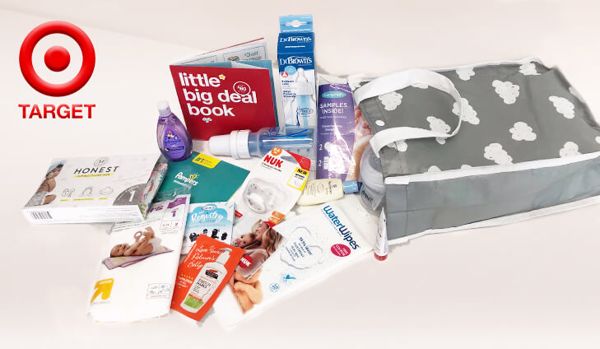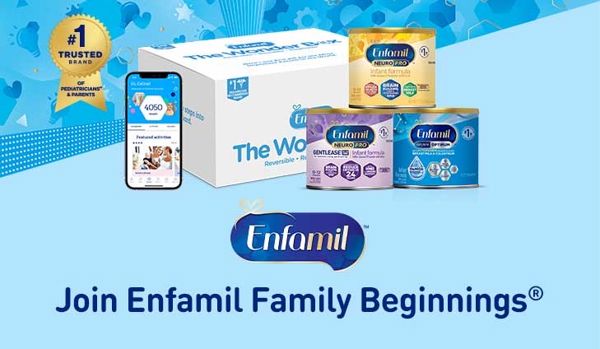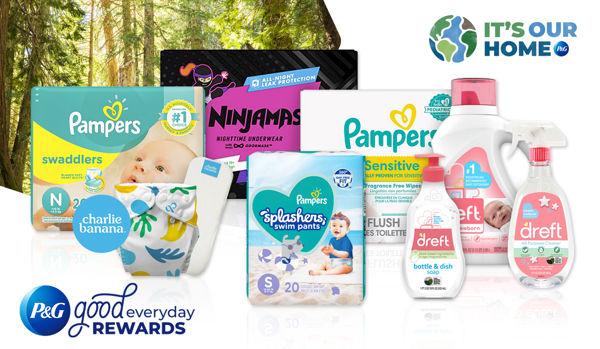The dreaded do's and don'ts list is here. There’s always been some debate over things moms-to-be should avoid whilst pregnant, including things that could affect mom’s or baby’s health, but here we’ll outline the most common things to avoid and things you can carry on doing whilst pregnant, right from the day you find out.
CAN: Take Folic Acid Before and During Pregnancy
The unsung hero of supplements. Proven to reduce chances of developing brain and spinal birth defects, you can start taking this daily as soon as you’re trying to conceive, or even from a year before, and right up to the day of birth. Folic Acid, particularly within the first 3-4 weeks of pregnancy can rapidly increase red blood cell production.
CAN’T: Eat ‘High-Risk’ Foods
This is probably the largest ‘don’t do this whilst pregnant’ list you’ll come across which you can find here. This list includes raw meat, deli meat, shellfish, smoked seafood, raw eggs and soft cheeses. Some should be more strongly avoided than others, but you’ll need to change your diet for sure!
CAN: Eat Healthily
Lean proteins, fruits and vegetables and healthy fats to make up a balanced diet are highly recommended to keep you and baby healthy throughout your pregnancy and gives the baby the nutrients it needs to grow.
CAN’T: Overdo Exercise or Exert Yourself
Another thing you can’t do whilst pregnant is over-exercise or overexert yourself. You are told to take it easy in the last trimester as this is when your hips will widen and you will begin to feel more pain in your lower back as your baby moves into position ready for birth. If you’re a regular gym-goer, consult your doctor as soon as you think you may be pregnant to find out what exercises you can still do to keep fit.
CAN: Drink Caffeinated Drinks (in moderation)
Caffeine, like any food and drink you consume, will pass through your baby’s placenta. So as a diuretic and a stimulant, caffeine can increase yours and your baby’s blood pressure and heart rate. While you may need a coffee in the morning to function, your baby’s metabolism is still developing and may not be able to handle it. This does not mean however that you need to give up caffeine entirely. Moderate levels of caffeine should be fine - about 150-200mg a day, equivalent to one cup of coffee or two cups of tea. Also, don’t forget that caffeine is also in things like chocolate, fizzy drinks and in some prescription medication.
CAN’T: Wear Stilettos or Heels above 3 inches
Pregnancy brings swollen ankles, achy feet and a sore back. Comfy shoes and supportive insoles are what you need, heels are not. This doesn’t mean don’t ever wear heels during your pregnancies, but for your own sake and safety, it’s advised that you stick to heels with a 3-inch heel or less and try to stick to wedges and platforms. As your baby grows, your center of gravity shifts, leaving you a bit unsteady on your feet. Save yourself a tumble and stick to flip flops!
CAN: Take Prenatal Vitamins
Vitamin supplements like the aforementioned Folic Acid, as well as vitamin D, Iron, Calcium and a healthy, balanced diet can help prevent illnesses and deformities as well as aid bone growth in the early stages. Iron will help give you more energy and prevent anaemia whilst vitamin C and calcium can help protect cells and help form your baby’s strong healthy bones and teeth.
CAN’T: Paint the Nursery
Paint fumes can be toxic to both mother and baby. As you cannot measure the levels of toxicity from paint to paint, so it’s important to be cautious and not expose yourself to fumes, even if at a low level.
CAN: Continue Working Out
There are many benefits of staying active and healthy during conception and until your last trimester. Keeping fit can help you carry the weight you gain during pregnancy, prepare you for the physical challenge of labor, improve your energy levels and mood, help you get a better night’s sleep and help your body spring back into shape after your baby is born. A combination of muscle strengthening and aerobic exercises are recommended, but be sure to adapt your workout as you get bigger.
CAN’T: Soak in a Hot Tub
The back pain and aches and pains you may get during pregnancy may leave you feeling like you need a long hot soak in a hot tub, but unfortunately, during the first trimester, you mustn’t raise your body temperature too high as this can lead to birth defects. Instead, take a soak in a warm bath!
CAN: Have Sex
If you’re in your first trimester, you may feel too tired or too sick to even think about sex, but it is still on the cards throughout your pregnancy. As long as you’ve not had any complications and have been given the okay from your midwife, you can still enjoy sex as normal, though you may want to stick to less adventurous positions the larger your belly gets, as not to put unnecessary pressure on your lower back.
CAN’T: Smoke or Breathe in Secondhand Smoke
We hope that this would be a fairly obvious one, given the numerous health warnings and studies showing the horrific effects smoking can have on your health and your baby’s development. Secondhand smoke can be almost as bad as smoking yourself. There are around 4000 chemicals in secondhand smoke which can also cause cancer. Exposure to cigarette chemicals can lead to miscarriage, premature delivery, low birth weight, stunted development and sudden infant death syndrome (SIDS).
CAN: Start Pelvic Floor Exercises
Strengthening your pelvic floor before and during pregnancy can help prevent you from leaking urine during and after pregnancy. With your baby sitting on your bladder most of the time, you may find your ability to ‘hold it in’ is weakened. To avoid leaking during the night, when sneezing or coughing, ask your GP or midwife about exercises you can do and start your pelvic floor exercises as early as possible.
CAN’T: Drink Alcohol
Another obvious thing to avoid doing whilst pregnant. Alcohol can pass very quickly through your bloodstream once consumed and into the placenta and umbilical cord. This can very quickly stunt your baby’s growth and development, more particularly the development of their organs and brain, which can cause many issues once born. The most notable risks of drinking alcohol when pregnant can be premature birth, fetal alcohol spectrum syndrome, brain damage, birth defects, miscarriage and stillbirth.
CAN: Have Massages, Osteopathic, Acupuncture, Physiotherapy and Chiropractic Treatments
All of the above therapies are completely safe for pregnant women and maybe a godsend for all your aches and pains, particularly if you already have back, hip, neck or leg pain prior to falling pregnant. If you need help relaxing, treat yourself to a pregnancy massage or ask your partner to slowly rub your shoulders, back and head to relieve pain and tension.
CAN’T: Consume too much or too little Vitamin A
On the whole, a small amount of vitamin A is vital to the growth of your baby and also acts as an antioxidant against pollution, UV rays and emotional stress. Enough vitamin A is needed to protect your immune system against hyperkeratosis. The recommended amount is 770 mcg per day, however large doses of vitamin A during pregnancy can be dangerous to both you and your baby and can result in birth defects. Vitamin A can be found in foods such as kale, sweet potato, spinach, carrots and butternut squash. Consult your doctor if you’re concerned you aren’t getting enough/ have too much vitamin A.
CAN: Get Relief from Morning Sickness
‘Morning sickness’ can actually come at any time of day, as well as actually last all day. Only about 75% of women actually get morning sickness and for most, it strikes during the first trimester. Eating small, frequent meals and snacks whilst sticking to fairly bland, room-temperature foods may help ease nausea, whilst ginger and acupressure bands also work for some women. If these don’t help, talk to your midwife about taking vitamin B6 or anti-nausea medication which are both considered safe during pregnancy.
CAN’T: Take Certain Medications - Always Check the Label.
Be careful about some of the prescription medications you take regularly and always check the leaflet that comes in the box. Some medications are not safe for pregnant women and can cause harm to the baby. Talk to your GP or midwife about your medications, as well as find out which painkillers and over-the-counter remedies you can and can’t take.
CAN: Test your Baby for Abnormalities, Defects or Chromosomal Problems.
It isn’t harmful to you or your baby to have screening tests conducted on your baby during the first trimester. Testing at this early stage can give you vital information about your baby’s risk of Down’s Syndrome and other issues that could arise during pregnancy. A diagnostic test called Chorionic Villus Sampling (CVS) is usually offered at 11-12 weeks, otherwise, you may also choose to wait until your second trimester for Amniocentesis testing.
CAN’T: Get Tattoos or Piercings
It’s important to remember that doing anything to your body that involves ingesting something or breaking the skin, has their risks whilst pregnant. While tattoo ink or getting a piercing is not safe during pregnancy because of the metals coming into contact with your bloodstream, breaking the skin this way is also not recommended as both actions have a high risk of infection. This is also why you cannot donate blood when you have recently gotten a tattoo or piercing. While your body is already working to grow a small human, fighting off infection can be difficult and may also cause harm to your baby in the process.







